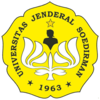Notary Professional Legal and Ethical Liability for Deed Reading Obligations Made by Notaries
Abstract
A Notary is a public official who in the case of his appointment and dismissal is carried out by the Minister of Law and Human Rights. The implementation of the duties of notary positions is based on Reglement op Het Notary Ambt in Indonesia / Regulation of the Notary Department in Indonesia (Staatsblad 1860 Number 3 the year 1860) as amended by Law No. 30 of 1860 2004 on Notary Department and as amended back to Law No. 2 of 2014 on Changes to Law No. 30/2004 on Notary Departments (thus called Notary Department Law or UUJN). UUJN makes a Notary authorized to make an authentic deed and other authorities as referred to in the Law. The obligation of a Notary in carrying out his duties and authority can be seen in the provisions of Article 16 of UUJN. The notary shall recite the deed that has been presented before the protesters by attending by at least 2 (two) witnesses or 4 (four) witnesses, and specifically in the case of the making of a will deed made underhand and then signed at the same time by the intercepts, witnesses and notaries, stipulated in Article 16 paragraph (1) letter m UUJN. The implementation of such obligations in the author's research process turns out that several Notaries do not carry out the obligation to read the deed. Notary in carrying out the duties and authority of its office is bound by the prevailing Laws and Regulations, namely the Law of the Notary Department and the Notary Code of Conduct. The approach method used in this study is a normative juridical approach. The data used is secondary data and primary data as a complement to secondary data. The results of the research and discussion of this research is the responsibility imposed on the Notary when he does not perform the reading of the deed that he has made before the intercepters and witnesses i.e. in terms of civility, the intercepter who feels materially harmed because of the mistakes made by the Notary to the material truth of the deed he made can seek damages for the deed made by the Notary concerned. The implication of not doing the reading of the deed by a notary can result in the evidentiary power of the deed which should be an authentic deed that has the power of perfect proof precisely resulting in the strength of its proof becoming underhand. The provisions of the reading of the deed referred to in the UUJN according to the author are also in the obligation to carry out the duties of the office as stipulated in the Amendment of the Notarial Code of Conduct of the Notary Association of Indonesia in Article 3 paragraph (15). The application of sanctions to the Notary may be Reprimand, Warning, Schorsing (temporary dismissal) of the Membership of the Association, Onzetting (dismissal) of the Membership of the Association, and disrespectful dismissal of the membership of the Association. The lifting of these sanctions is adjusted to the quality and quality of the violations committed by the member.
Keywords: Responsibility, Notary, Notary Code of Conduct, Deed
Full Text:
PDFReferences
Adjie, Habib. (2009). Sanksi Perdata dan Administratif terhadap Notaris sebagai Pejabat Publik. Bandung: PT. Refika Aditama.
Adjie, Habib. (2009). Sekilas Dunia Notaris & PPAT Indonesia (Kumpulan Tulisan). Bandung: Mandar Maju.
Manan, Bagir. (2000). Wewenang Propinsi, Kabupaten, dan Kota dalam Rangka Otonomi Daerah. Makalah pada Seminar Nasional, Fakultas Hukum Unpad, Bandung, 13 Meri 2000: hlm. 1-2
Rahmad Hendra, “Tanggungjawab Notaris Terhadap Akta Otentik yang Penghadapnya Mempergunakan Identitas Palsu di Kota Pekanbaru”, Jurnal Ilmu Hukum Volume 3 No. 1, hlm. 9.
Santoso, Didi. (2009). Tanggung Jawab Notaris dalam Pembuatan Akta yang Memuat Dua Perbuatan Hukum (Analisa Putusan Mahkamah Agung Nomor 1440.K/PDT/1996). Tesis. Program Pascasarjana Megister Kenotariatan Universitas Diponegoro, Semarang.
Sjaifurrachman dan Habib Adjie. (2011). Aspek Pertanggungjawaban Notaris dalam Pembuatan Akta. Bandung: CV. Mandar Maju.
Soerodjo, Irawan. (2003). Kepastian Hukum Hak Atas Tanah di Indonesia. Surabaya: Arkola.
Sungguh, As’ad. (2004). Etika Profesi. Jakarta: Sinar Grafika.
Supriadi. 2012. Etika dan tanggung jawab profesi hukum di Indonesia. Jakarta: Sinar Grafika.
Tobing, G.H.S. Lumban. (1980). Peraturan Jabatan Notaris. Jakarta: Erlangga.
Yudara, N. G. (2015). Notaris dan Permasalahannya pokok-pokok Pemikiran di Seputar Kedudukan dan Fungsi Notaris serta Akta Notaris menurut Sistem hukum Indonesia, Makalah yang disampaikan dalam Kongres INI di Jakarta.
Laws and Regulations
Undang-Undang Dasar Republik Indonesia Tahun 1945.
Kitab Undang Undang Hukum Perdata.
Republik Indonesia. 2014. Undang-Undang Nomor 2 Tahun 2014 Tentang Perubahan Atas Undang-Undang Nomor 30 Tahun 2004 Tentang Jabatan Notaris Jabatan Notaris. Sekretariat Negara. Jakarta.
Kode Etik Notaris Ikatan Notaris Indonesia (INI), Bandung, 27 Januari 2005.
Perubahan Kode Etik Notaris Kongres Luar Biasa Ikatan Notaris Indonesia (INI), Banten, 29-30 Mei 2015.
DOI: https://doi.org/10.20884/1.atc.2019.2.1.63
Refbacks
- There are currently no refbacks.
Indexed By:
 | |
 |  |
 |
 Authentica: Privat Law Journal Faculty of Law, Universitas Jenderal Soedirman Yustisia IV Building, Law Journal Center Purwokerto, Central Java, Indonesia, 53122 |

This work is licensed under a Creative Commons Attribution 4.0 International License.













